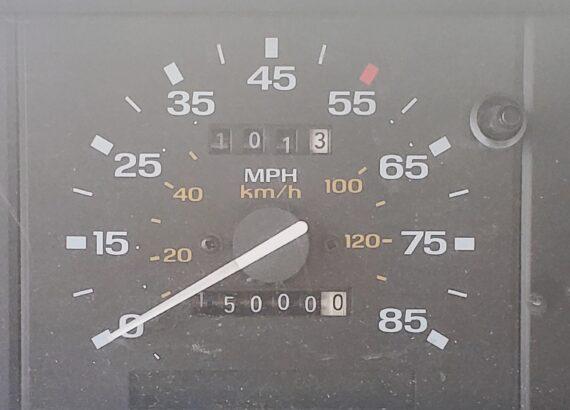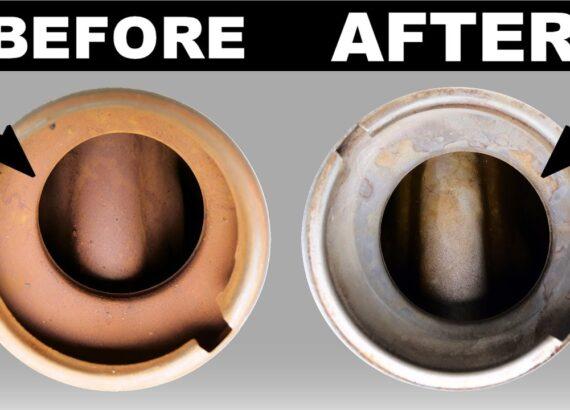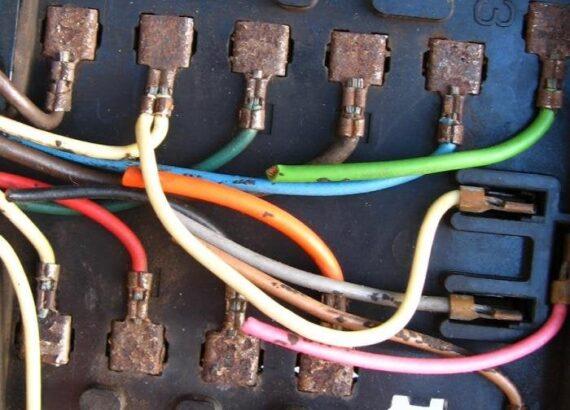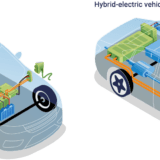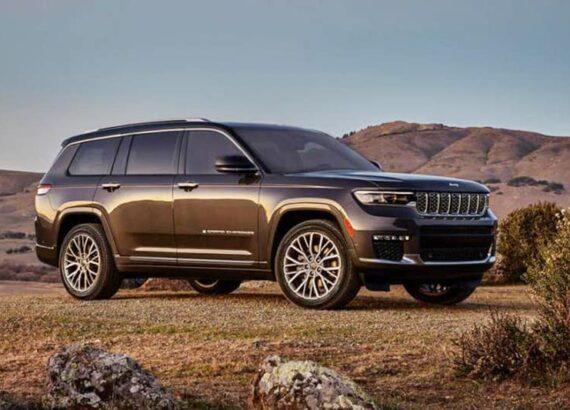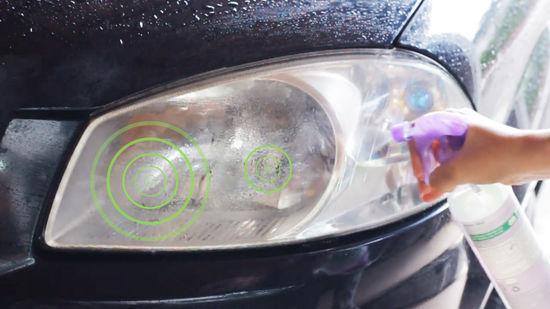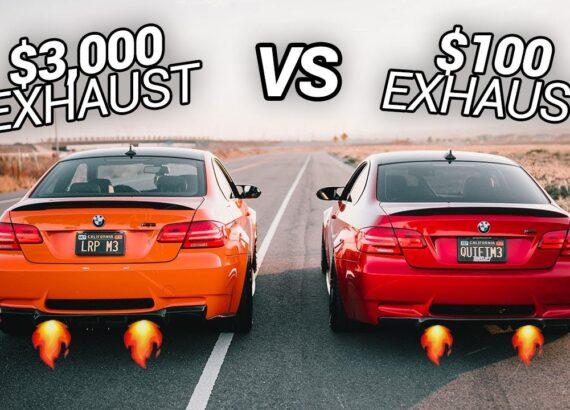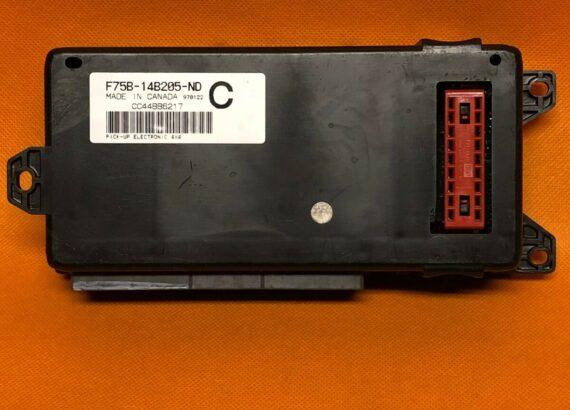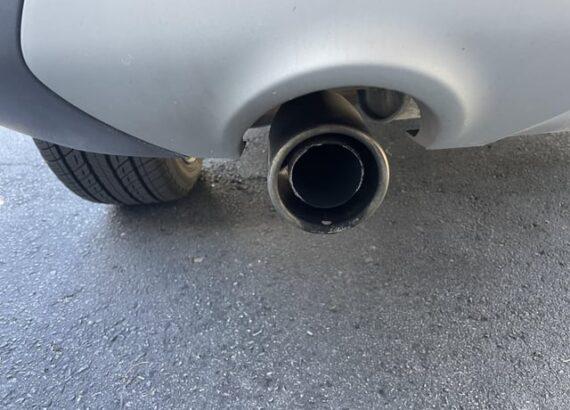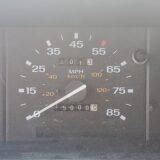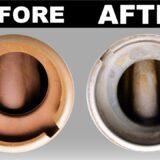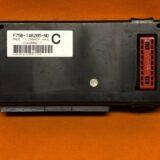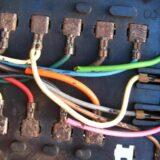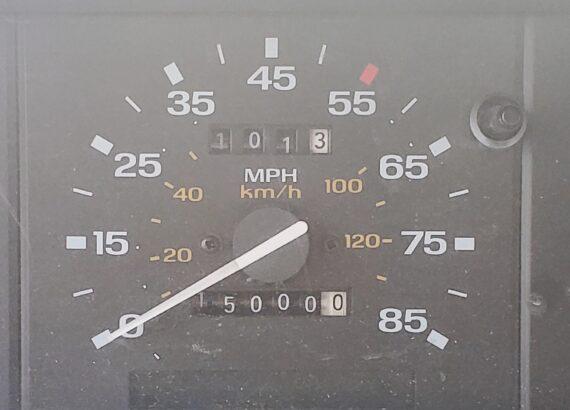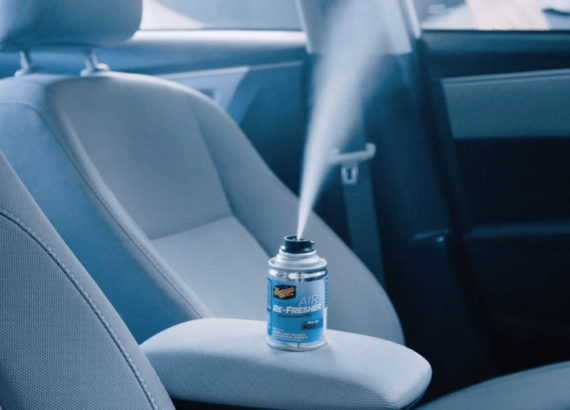![Easy Ways to Improve Gas Mileage & Save Fuel [2025 Guide]](https://siumpro.com/wp-content/uploads/how-can-you-make-your-car-more-fuel-efficient.png)
Easy Ways to Improve Gas Mileage & Save Fuel [2025 Guide]
To make your car more fuel efficient, maintain proper tire pressure and drive at a steady speed. Regular maintenance is also crucial.
Fuel efficiency is essential for saving money and reducing environmental impact. Simple habits and regular car maintenance can significantly improve your car’s fuel economy. Ensuring your tires are properly inflated can reduce rolling resistance, enhancing efficiency. Driving at a steady speed avoids unnecessary acceleration and braking, which consumes more fuel.
Regular oil changes and engine check-ups keep your car running smoothly, helping it burn fuel more efficiently. Removing excess weight and using cruise control on highways can also contribute to better fuel economy. By adopting these practices, you can maximize your car’s fuel efficiency and enjoy a smoother, more cost-effective driving experience.

Credit: www.mercedesbenzfwb.com
Driving Habits
Improving your car’s fuel efficiency starts with good driving habits. Small changes can save fuel and money. Here are some tips on how to drive smarter.
Smooth Acceleration
Accelerate gently and avoid sudden starts. Rapid acceleration uses more fuel, while smooth acceleration allows the engine to work efficiently. Try to press the gas pedal lightly, which reduces fuel consumption.
Consistent Speed
Maintaining a steady speed helps save fuel. Use cruise control on highways. This prevents constant speeding up and slowing down, keeping the engine running smoothly.
Here are some tips to maintain a consistent speed:
- Use cruise control on open roads.
- Anticipate traffic flow to avoid frequent braking.
- Keep a safe distance from the car in front.
These simple habits can improve your car’s fuel efficiency. Drive smart and save money on fuel.
Regular Maintenance
Regular maintenance is crucial for improving your car’s fuel efficiency. It ensures your vehicle runs smoothly and consumes less fuel, and it also extends the life of your car. Let’s explore some vital aspects of regular maintenance.
Engine Check-ups
Your engine’s health significantly impacts fuel efficiency. Regular engine check-ups can catch issues early. This can save fuel and money. Ensure the spark plugs, fuel filters, and air filters are clean and working well. Clean filters help the engine burn fuel more efficiently. Regular oil changes also keep the engine running smoothly. Use the recommended oil type for your car. A well-maintained engine consumes less fuel and performs better.
Tire Pressure
Correct tire pressure is essential for fuel efficiency. Underinflated tires increase resistance and fuel consumption. Check your tire pressure at least once a month and keep it at the manufacturer’s recommended level. This information is usually found on a sticker inside the driver’s door. Properly inflated tires also improve safety and tire lifespan. Use a reliable pressure gauge to check your tires. Adjust the pressure as needed.
| Maintenance Task | Recommended Frequency |
|---|---|
| Engine Check-Ups | Every 3 months or 3,000 miles |
| Oil Change | Every 5,000 to 7,500 miles |
| Tire Pressure Check | Monthly |
Regular maintenance is simple and cost-effective. It keeps your car fuel-efficient and reliable. Follow these tips to save fuel and enjoy a smoother ride.
Vehicle Weight
Vehicle weight plays a significant role in fuel efficiency. Heavier cars consume more fuel. Reducing your car’s weight can save you money on gas. Here are some effective ways to make your vehicle lighter.
Remove Excess Cargo
Extra weight in your car decreases fuel efficiency. Clear out unnecessary items and keep only essential items in your trunk. A lighter vehicle performs better and saves fuel.
- Remove heavy tools and equipment not in daily use.
- Clear out sports gear when not needed.
- Keep your trunk organized and clutter-free.
Lightweight Accessories
Consider using lightweight accessories to reduce vehicle weight. These can replace heavier car parts without compromising safety.
| Accessory | Lightweight Option |
|---|---|
| Car seats | Choose seats with lightweight frames. |
| Wheels | Opt for alloy wheels instead of steel ones. |
| Battery | Install a lighter lithium-ion battery. |
Using lightweight accessories can significantly reduce your car’s weight, making it more fuel-efficient and cost-effective.
Aerodynamics
Improving your car’s aerodynamics can significantly boost its fuel efficiency. Better aerodynamics reduce the air resistance your vehicle faces, resulting in less energy needed to maintain speed. Below are some key areas to focus on to enhance your car’s aerodynamics.
Roof Racks
Roof racks are useful for carrying extra luggage. But they can create drag and reduce fuel efficiency. Removing roof racks when not in use can improve your car’s aerodynamics. This simple step can save you fuel and money.
Wind Deflectors
Wind deflectors can help manage airflow around your car. They are often installed on windows and sunroofs. By redirecting the wind, they can reduce drag and improve fuel efficiency. Installing wind deflectors is an easy way to boost your car’s aerodynamics.
| Feature | Benefit |
|---|---|
| Roof Racks | Remove when not in use to reduce drag |
| Wind Deflectors | Reduce drag by managing airflow |
Implementing these small changes can lead to big savings on fuel. Focus on making your car more aerodynamic to enhance its performance and efficiency.
Fuel Type
Choosing the right fuel type can significantly impact your car’s fuel efficiency. Understanding the differences between various fuels helps you make an informed decision. Here, we explore two main categories: premium vs. Regular and Alternative Fuels.
Premium Vs Regular
Many drivers wonder if using premium fuel improves fuel efficiency. The truth is, it depends on your car’s engine.
Premium fuel has a higher octane rating. This can benefit high-performance engines by preventing knocking. Knocking can reduce fuel efficiency and damage the engine.
Regular fuel works well for most standard engines. It costs less and provides the same mileage if the engine doesn’t require high-octane fuel.
| Fuel Type | Cost | Best For |
|---|---|---|
| Premium | Higher | High-performance engines |
| Regular | Lower | Standard engines |
Alternative Fuels
Exploring alternative fuels can also lead to better fuel efficiency. These fuels are often more environmentally friendly and cost-effective in the long run.
- Electric: Electric cars have no fuel costs and zero emissions. The charging infrastructure is expanding.
- Hybrid: Combines gasoline and electric power. Offers better fuel efficiency and lower emissions.
- Diesel: Diesel engines are more fuel-efficient than gasoline engines. Suitable for long-distance driving.
- Biofuel: Made from renewable resources like corn or sugarcane. Reduces dependency on fossil fuels.
Choosing the right fuel type can enhance your car’s fuel efficiency. It also helps in saving money and protecting the environment.

Credit: www.weforum.org
Technology Aids
Technology can help improve your car’s fuel efficiency. Various tools and features are available to assist. Let’s explore how technology can help save fuel.
Fuel Economy Apps
Fuel economy apps track your driving habits. They provide tips to improve your fuel efficiency. You can find apps that monitor your speed, braking, and acceleration. These apps give feedback to help you drive smarter.
- Fuelly: Tracks your fuel usage and expenses.
- GasBuddy: Finds the cheapest gas prices nearby.
- Drivvo: Monitors your car’s performance and costs.
Using these apps, you can save money on gas. They make it easy to develop better driving habits.
Eco-driving Modes
Many modern cars have eco-driving modes. This feature helps your car use less fuel. It adjusts the engine and transmission settings for better efficiency. Some eco modes even change the way your air conditioning works.
| Car Brand | Eco Mode Features |
|---|---|
| Toyota | Optimizes engine and transmission |
| Honda | Adjusts throttle response |
| Ford | Improves fuel efficiency in stop-and-go traffic |
Eco-driving modes make it easier to drive efficiently. They take the guesswork out of saving fuel.
Route Planning
Optimizing your car’s fuel efficiency goes beyond just maintaining the vehicle. One important aspect is route planning. By selecting the most efficient routes, you can save a significant amount of fuel. Let’s dive into some essential tips under this category.
Avoid Traffic
Getting stuck in traffic can greatly reduce your car’s fuel efficiency. Idling in traffic burns fuel unnecessarily. To avoid traffic, consider using apps like Google Maps or Waze. These apps offer real-time traffic updates.
Plan your trips during non-peak hours. This helps you avoid rush hour traffic. Check local news for traffic reports. This information helps you choose a route with the least congestion. The less time you spend in traffic, the more fuel you save.
Efficient Paths
Choosing the most efficient path to your destination is crucial. Look for routes that have fewer stops. Constantly stopping and starting the car wastes fuel.
- Use highways for long trips.
- Avoid routes with many traffic lights.
- Consider routes with fewer turns.
Using cruise control on highways helps maintain a consistent speed. Consistent speeds are more fuel-efficient. Additionally, avoid hilly routes. Climbing hills consumes more fuel.
| Route Type | Fuel Efficiency |
|---|---|
| Highway | High |
| Urban Streets | Low |
| Hilly Roads | Medium |
Always keep your GPS updated. Updated maps provide the latest route information, helping you avoid road closures and detours and saving more fuel.
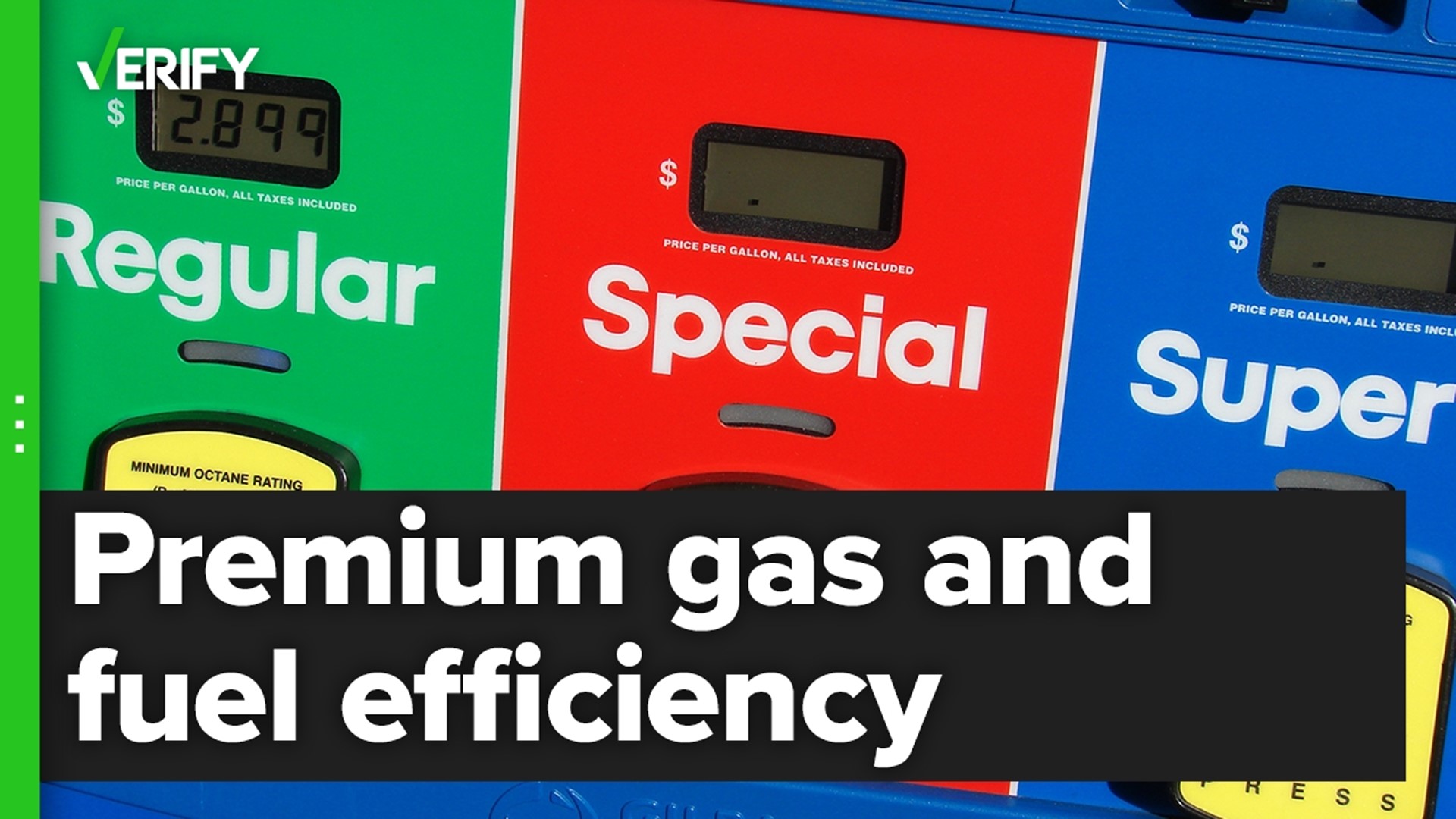
Credit: www.verifythis.com
Climate Control
Climate control in your car impacts fuel efficiency. Learn how to use it wisely. Optimize your car’s climate settings to save fuel.
Air Conditioning
Air conditioning can consume a lot of fuel. Use it wisely to save gas. Keep your AC in good condition. Regular maintenance helps.
- Clean or replace AC filters.
- Check for refrigerant leaks.
- Ensure the compressor works well.
Windows Vs Ac
Decide between windows down or AC on based on driving speed. At low speeds, open windows use less fuel. At high speeds, AC is more efficient.
| Speed | Action |
|---|---|
| Under 40 mph | Windows Down |
| Over 40 mph | AC On |
Choose the right option based on your speed. This helps you save fuel.
Frequently Asked Questions
What Are The Top Fuel-saving Tips?
Maintain correct tire pressure, drive at steady speeds, and reduce unnecessary weight in your car.
How Does Regular Maintenance Impact Fuel Efficiency?
Regular maintenance ensures optimal engine performance, leading to better fuel efficiency and reduced emissions.
Can Tire Pressure Affect Fuel Consumption?
Yes, under-inflated tires increase rolling resistance, which can lower fuel efficiency.
Does Air Conditioning Use More Fuel?
Yes, using air conditioning can increase fuel consumption due to the extra load on the engine.
How Can Driving Habits Improve Fuel Economy?
Smooth acceleration, consistent speeds, and avoiding excessive idling can significantly improve fuel economy.
Is Cruise Control Good For Fuel Efficiency?
Yes, cruise control helps maintain a constant speed, which can enhance fuel efficiency on highways.
Can Removing Excess Weight Save Fuel?
Yes, reducing excess weight decreases the energy needed to move the car, improving fuel efficiency.
What Role Does Aerodynamics Play In Fuel Efficiency?
Improved aerodynamics reduce drag, helping the car move more efficiently and use less fuel.
Conclusion
Boosting your car’s fuel efficiency is simple with these tips. Regular maintenance and mindful driving habits can save fuel. Implement these strategies to enjoy longer drives and fewer stops at the pump. Start today and watch your savings grow while helping the environment.
Efficient driving benefits both your wallet and the planet.

Sium is a passionate automotive enthusiast and writer at SiumPro. With a deep understanding of cars and a keen eye for detail, Sium brings valuable insights and engaging content to readers. From reviews to tips and industry updates to delivering informative and enjoyable automotive articles.
